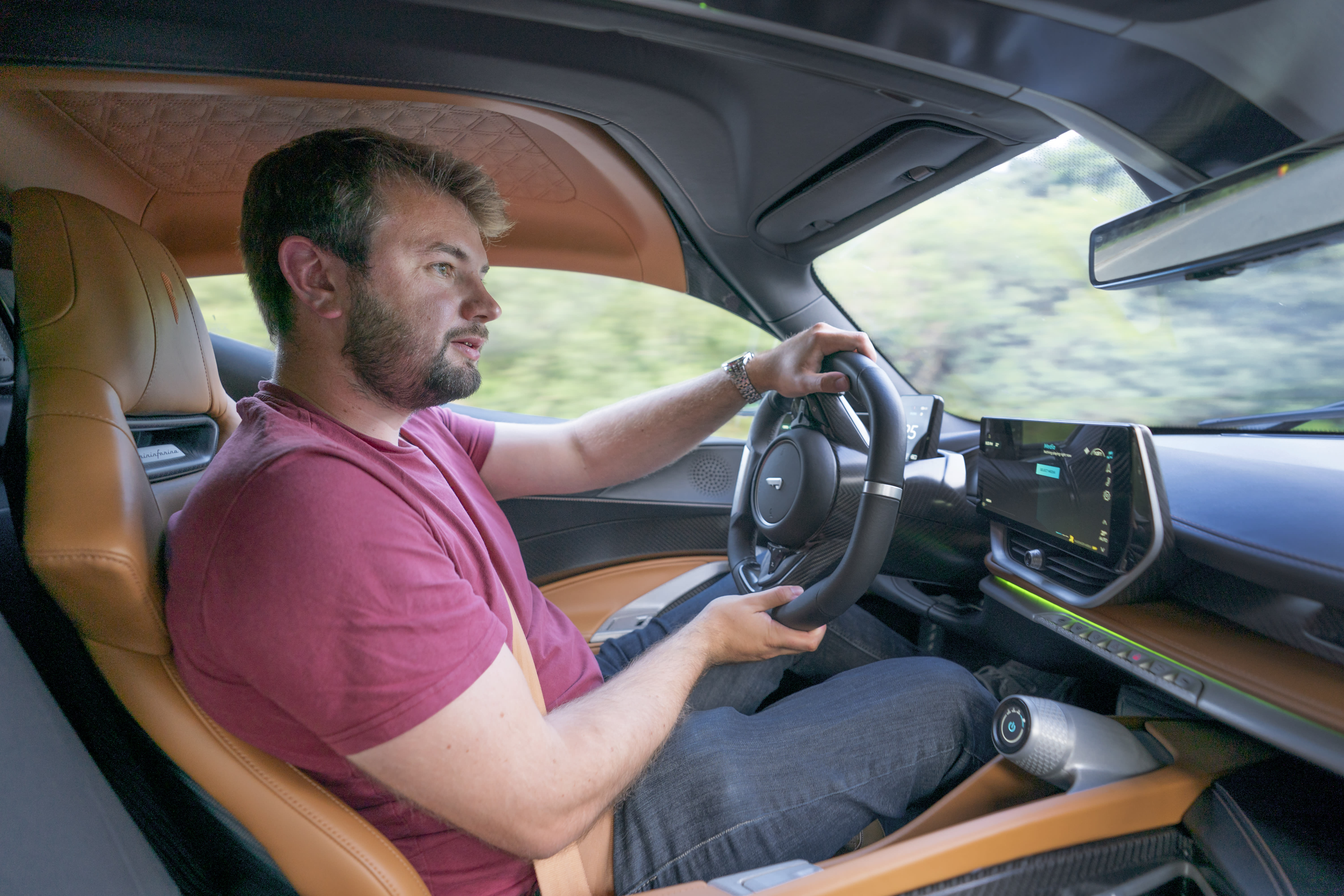
Lexus ES (2023-) Review

Introduction
When it comes to executive saloons, the Germans dominate everything. The BMW 5 Series, Audi A6 and Mercedes-Benz E-Class are the go-to models for discerning premium customers seeking luxury, space and class in one monthly payment. But it doesn’t have to be the way. If you want something a bit different, you can choose something that didn’t originate in southern Germany.
That’s where the Lexus ES comes in. Japan’s answer to the likes of Audi, Lexus remains a bit of an oddball choice in a market dominated by European players, but it’s an oddball with a remarkable reputation for quality and reliability. It’s big into hybrid technology, too, and after a rethink of its infotainment systems, it should have plenty going for it. So is the ES a viable alternative to the more conventional German saloons? Or is it a bit too much of a left-field choice to be a serious contender?
Select's rating score* - 3.4 / 5
At a Glance
With customers flocking to the German executive saloons, Lexus has tried to avoid too much direct competition, preferring to differentiate the car from its rivals. As a result, the ES has quite a distinctive image, with origami-esque styling that’s become a hallmark of the Japanese brand. Whether it appeals or not will depend on taste, but it’s definitely distinctive.
The inside, on the other hand, is slightly more conventional, with lots of leather and metal trim, as well as the new touchscreen infotainment system. Now bigger, clearer and easier to use than its fiddly predecessor, the system brings the ES’s cabin bang up to date. That said, while the optional digital door mirrors look flash, they aren’t worth specifying.
Under the bonnet, drivers get little in the way of choice, with only the 300h hybrid system on offer. With a 2.5-litre petrol engine and an electric motor, it’s a “self-charging” hybrid that offers diesel-esque economy, even around town, as well as a smooth power delivery and more than 200hp. It’s a compelling choice.
And it’s only fortified by the impressive ride comfort on offer from even the supposedly sporty F Sport models. It’s no magic carpet, but the ride is supple and smooth and mature, and that combines with the refinement of the powertrain to create a really relaxing drive. Sporty it ain’t, but that’s quite refreshing in its way.
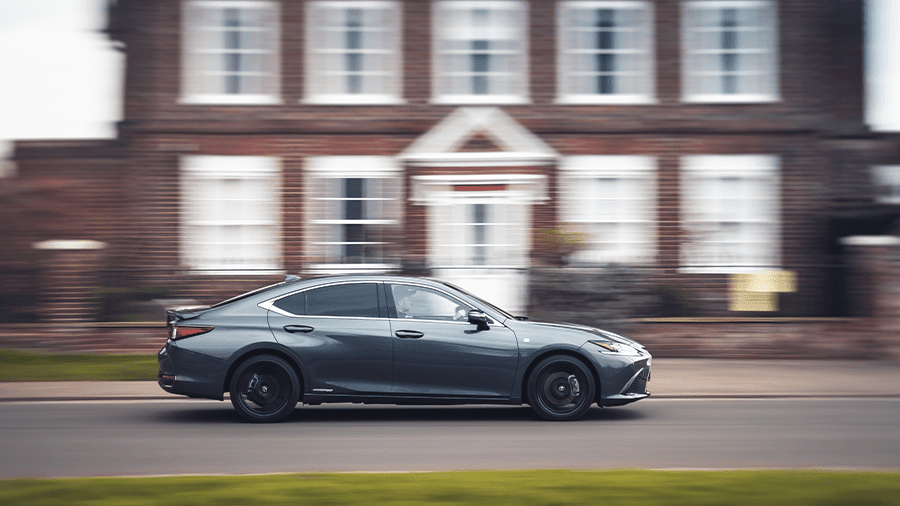
Key Features
One of the key differentiators of the ES is its powertrain, which is standard across the range. Combining a 2.5-litre four-cylinder petrol engine with a “self-charging” hybrid system that allows it to drive on electric power alone at low speeds or when the system is under light load. As a result, the ES can offer impressive economy of more than 50mpg, although it will struggle to achieve that on motorways, yet it also has a healthy power output of more than 200hp.
The other big news for the latest-generation ES is the new touchscreen infotainment system, which is a huge improvement on the old system, which came with a kind of trackpad navigation system. It was every bit as clunky as it sounds, and it really held the ES back, but the new version feels much more modern and it’s vastly more intuitive to use, even if it still isn’t quite the best in the business. Nevertheless, it has cured the ES’s biggest Achilles heel, and given the car significantly more appeal as a result.

Performance & Drive
Whereas the likes of BMW and Mercedes-Benz offer customers a wide range of engine options in there big saloons, Lexus’ offering is somewhat less plentiful. Instead, you just get the one option - the 300h 2.5-litre petrol-powered “self-charging” hybrid. That combines a four-cylinder petrol engine with a comparatively small battery and electric motor, allowing the car to drive on electric power at low speeds or when the powertrain is under a light load.
As a result, the ES 300h is remarkably efficient, despite offering ample power. A total of 218hp heads to the front wheels, allowing the big saloon to accelerate from 0-62mph in a perfectly sufficient, if not particularly spectacular, 8.9 seconds. And unless you regularly race down the German motorways, the 112mph top speed will be more than enough, too.
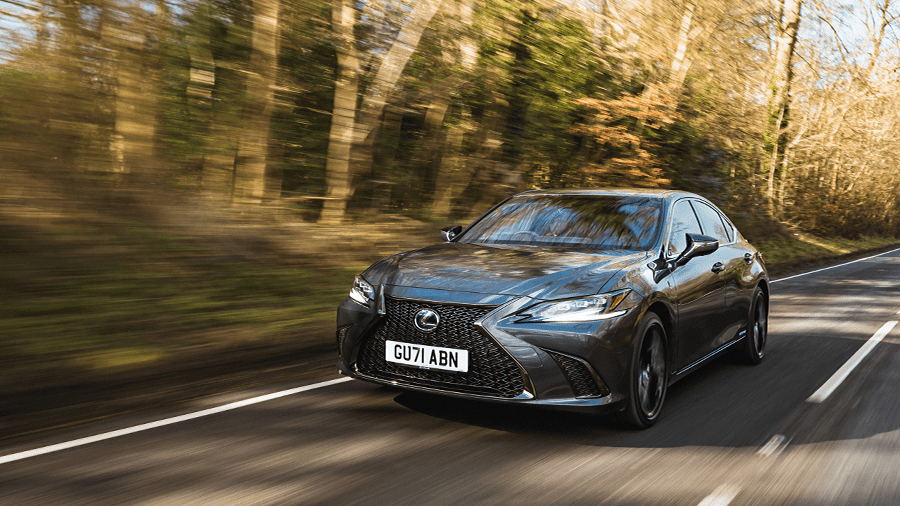
But while performance is no more than adequate, it’s the refinement and comfort that sets this car apart. Not only is the suspension impressively supple, especially at motorway speeds, but the car is unbelievably quiet and smooth, with the engine creating surprisingly little noise and the electric motor doing its share of the work more often than you might imagine. For long-distance cruising, there aren’t many cars better.
The catch is that handling has taken a back seat in the ES’s list of priorities, and those seeking fun and sportiness might be advised to look elsewhere. But it isn’t all bad. The steering is a bit numb and lifeless, but it is smooth and relatively precise, while the body control is better than you might expect from something this comfortable. It doesn’t lurch around at all, and while it can’t match the BMW 5 Series or Jaguar XF dynamically, it can contend with the Genesis G80 and Volvo S90.
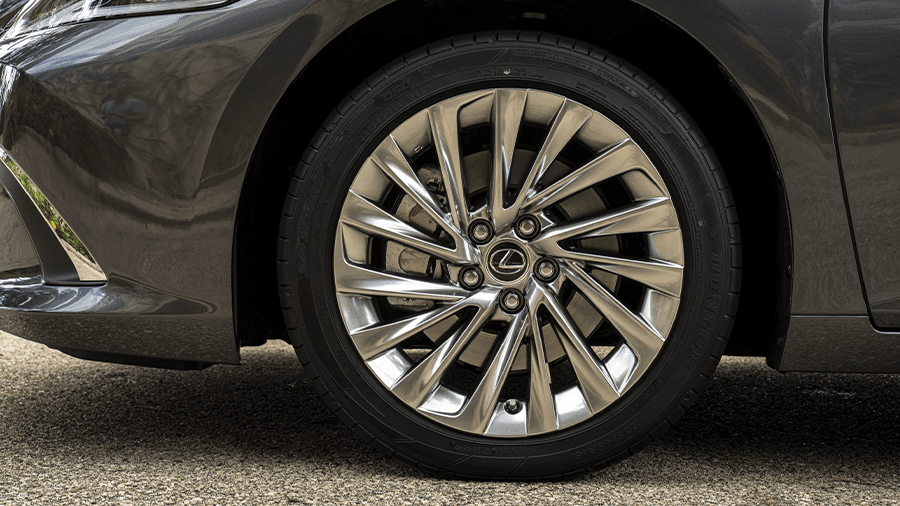
Running Costs & Emissions
The other advantage of the hybrid system, aside from refinement, is the promise of decent fuel economy. Admittedly, the ES isn’t at its best on long motorway runs, where the electric motor doesn’t get the chance to take over that often, but the Lexus still returns more than 50mpg on the official economy test. Considering it has the power to compete with most comparable 2.0-litre petrol saloons, that’s diesel-esque efficiency, although we only returned something in the low-to-mid 40s on a longer drive. Around town, however, the ES performs admirably.
And the hybrid system also keeps emissions to a minimum. While a plug-in hybrid will undoubtedly be cheaper to tax for company car drivers, the ES is better than most petrol- and diesel-powered saloons of its size, with CO2 emissions of around 120g/km.
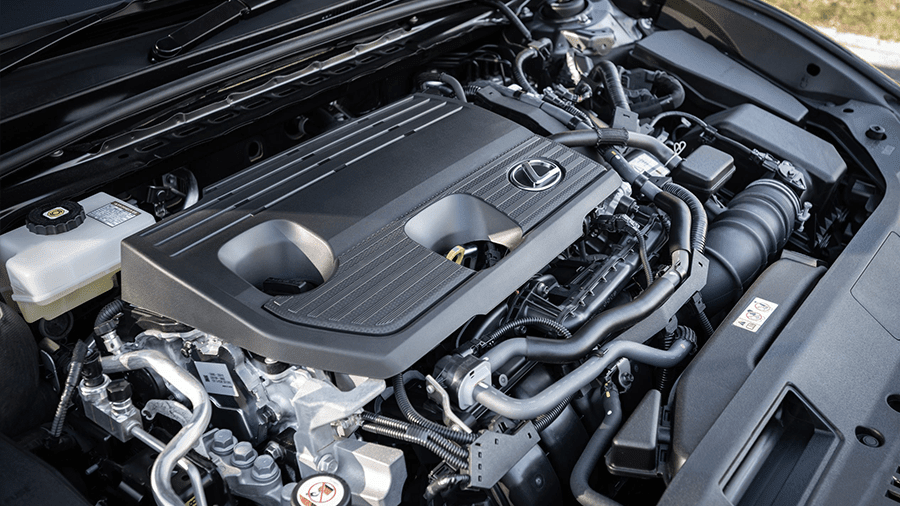
Interior & Technology
For years, Lexus’ Achilles heel has been its interior technology, and it’s clear the company’s engineers have been working hard to put that right. The key, it seems, is the new touchscreen infotainment system, which has replaced the blocky old system that was navigated using a laptop-style trackpad.
The new system isn’t perfect, but it’s such a giant leap forward that it’s tempting to overlook its flaws, including some small icons and some illogical layouts. But the fact of the matter is it’s competitive, and it works really well with the Android Auto and Apple CarPlay phone integration systems, so it’s removed the biggest barrier to choosing an ES over anything else.
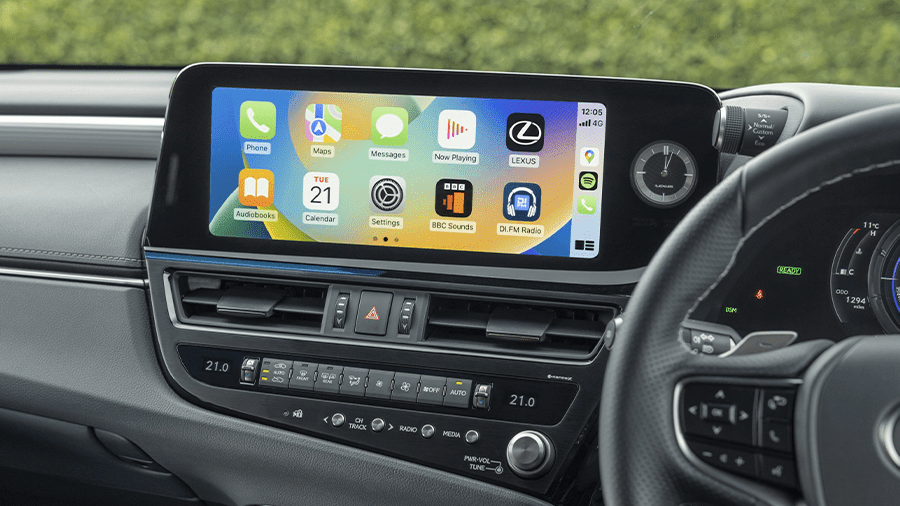
All of which has left the ES’s cabin free of distractions, and allowed us to enjoy what is already a high-quality environment. Sure, there are a few bits of plastic kicking about and they don’t always feel premium, but there’s absolutely no arguing with the way the ES’s cabin has been built. Every moving part feels well damped and beautifully engineered, and every static part feels rugged and well anchored to its neighbour. And the seats are incredibly comfortable.

Practicality & Boot Space
The ES is quite a big car - it’s noticeably longer than its predecessor - and the result of that growth is a corresponding increase in cabin space. With ample legroom and headroom in the rear, nobody will have any trouble fitting four adults in the cabin. Putting five in there might be less pleasant due to the width of the central rear seat, but even that should be tolerable for a short journey.
Boot space, meanwhile, is pretty good for a hybrid saloon, with 454 litres of load space behind the back seats, and it would likely be larger were it not for the hybrid system. However, other rivals don’t necessarily have that handicap, and compared with petrol and diesel alternatives the Lexus’ boot space isn’t that impressive. It’ll surely be more than adequate for most people, though.

Safety
Although the ES has been updated of late, the big saloon is still structurally much the same as its predecessor, so the existing safety rating – first issued in 2018 – still stands. Fortunately for the ES and its customers, it received an impressive five-star rating with a 91% score for adult occupant protection and a 90% score for its protection of vulnerable road users. Its 87% score for child occupant protection was pretty solid, too.
But the ES also comes with plenty of gadgets to help prevent accidents from happening in the first place. Even the basic models come with blind-spot monitoring and Lexus’ Safety System +, which includes lane departure warning and autonomous emergency braking technology that brakes automatically if the driver fails to respond to a hazard. Radar cruise control, which maintains a safe distance to the vehicle in front, is also included, as is traffic sign recognition.

Options
There’s quite a lot of choice in the ES range, with customers able to pick from a selection of four different models. All four are well appointed, though, with even the cheapest Premium Edition getting a sunroof, 18-inch alloy wheels and a host of safety systems, not to mention heated front seats, a heated steering wheel and the 12.3-inch touchscreen infotainment system.
Moving up to the Premium Pack, meanwhile, adds leather upholstery and a 10-way electrically adjustable driving seat, plus a 360-degree manoeuvring camera. And if you opt for the F Sport trim you get sportier exterior styling and F Sport-specific front seats, as well as man-made leather upholstery, 19-inch black alloy wheels and sports suspension.
Finally, the range-topping Takumi model offers more upmarket seats with ventilation in the front, plus an electrically operated boot lid and a choice of wood interior trim inlays. A head-up display is standard, too, along with a 17-speaker Mark Levinson sound system.
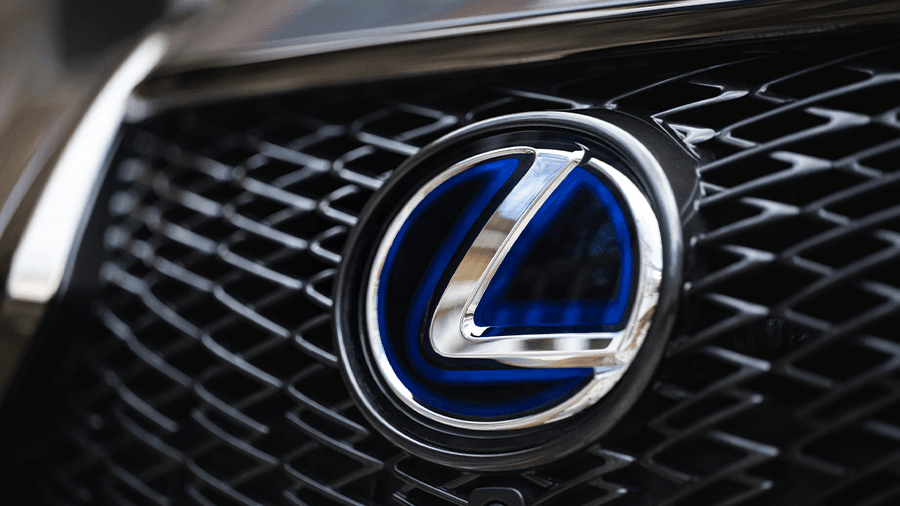
Rival Cars
The ES has some big players to contend with in this class, with the new Mercedes-Benz E-Class being the main rival. Comfortable, high-tech and stylish, it’s set to remain one of the most popular models on the market, but Mercedes’ quality isn’t what it once was, whereas the ES’s cabin is rock solid.
The same criticism can be levelled at the new BMW 5 Series, although both the BMW and the Mercedes still feel pretty premium. The new 5 Series has much better cabin tech than pretty much anything else on sale, and it’s still absolutely brilliant to drive, while BMW offers an impressive range of engine options.
And then there’s the Audi A6, which is getting long in the tooth, but it’s still a great luxury saloon. Beautifully made and offered with Audi’s stellar Virtual Cockpit digital instrument display, it’s hugely popular for a very good reason, although it doesn’t quite have the agility of the new 5 Series. Or the old 5 Series, for that matter.
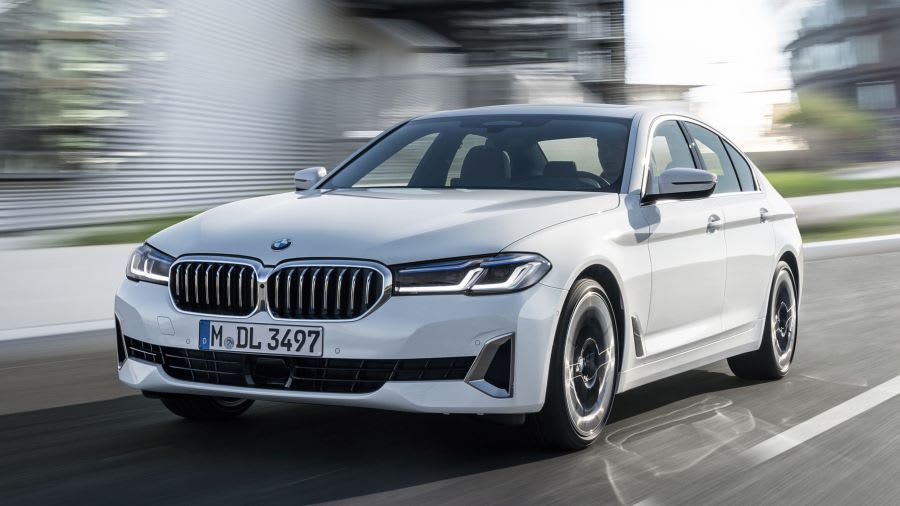
Fortunately for Lexus – although not for customers – the Volvo S90 recently left the market, with Volvo only distributing vehicles from stock, but there are other rivals from outside Germany. Perhaps chief among these is the Jaguar XF, which majors on handling and style, but doesn’t have the cabin quality of the Lexus, or indeed the same reliability credentials.
But a newcomer that can match the ES on those fronts is the Genesis G80, which is a relative newbie in the sector, but comes with the backing of South Korean giant Hyundai. With a beautiful interior and great tech, it’s a surprisingly capable saloon, but it’s hampered by practicality issues and economy problems, particularly in the case of the all-wheel-drive petrol version.
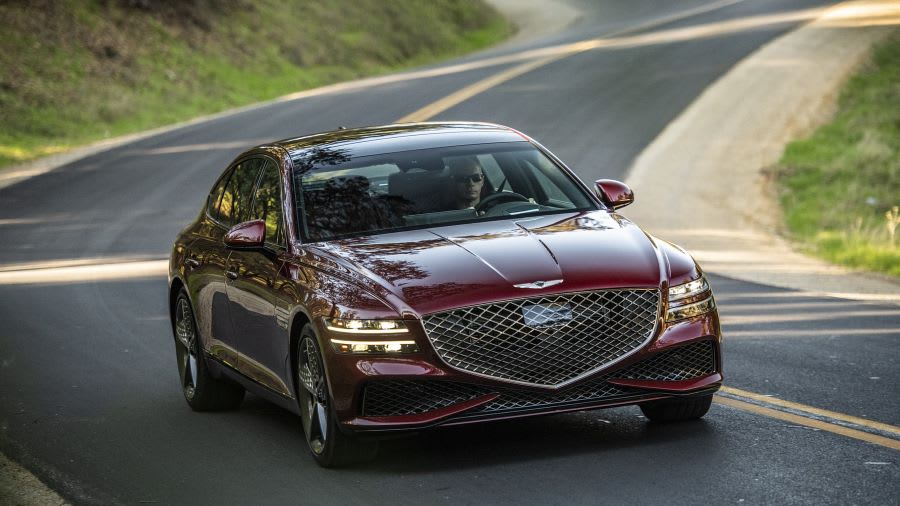
Verdict & Next Steps
While the ES won’t suit every customer, its combination of quality, comfort, space and hybrid power will doubtless give it plenty of appeal to some. It is, in every way you care to mention, a worthy rival for the German saloons, albeit one with a slightly more relaxed and carefree attitude. But while its competence is not in question – particularly with the new touchscreen that has completely removed the car’s biggest weakness – the ES has a key attribute that’s missing from some other cars in this class: it’s eminently likeable. Those who want a comfortable hybrid saloon will find it a really agreeable car to get along with.
Where to next?
View latest Lexus ES leasing deals - from just £364.43 per month inc VAT**.
Call us on 0118 3048 688 or hit the green 'Enquire' button for more details.
Looking for a great leasing deal? Check out our incredible range of Special Offers and Lease Deals.
New electric Saloon? Read our latest Car Reviews and find the right model for you.
Want to know more about leasing? Take a look at our comprehensive Leasing Guides.
Interested in everything motoring? Why not catch up on all the latest Car Leasing News.
**Score based on Select’s unique meta score analysis, taking into account the UK’s top leading independent car website reviews of the Subaru Solterra.
**Correct as of 07/11/2023. Based on 9 months initial payment, 5,000 miles annually, over a 36 month lease. Initial payment equivalent to 9 monthly payments, or £3,279.87 (Plus admin fee) Ts and Cs apply. Credit is subject to status.
